Listen now on Apple, Spotify or YouTube
In This Edition
- Reaction to Ubisoft’s new subsidiary with Tencent
- Nintendo’s surprise Switch 1 Direct
- Sony’s Phil Rosenberg steps down
- Our big interview with Netflix games president Alain Tascan
What a first week! Four shows, nine guests, and thousands of lovely, wonderful subscribers. I’m tired, but in a good way.
We have one last edition for you this week, headlined by our interview with the president of Netflix Games, Alain Tascan. But there were some big moments yesterday for video games, including a big announcement from Ubisoft and a surprise Nintendo Direct.
Cuts feared as Ubisoft carves off Assassin’s Creed, Far Cry and Rainbow Six
The big story was that Ubisoft and Tencent have formed a new subsidiary for Ubisoft’s biggest franchises: Assassin’s Creed, Far Cry and Rainbow Six.
The subsidiary is valued at €4 billion, with Tencent taking just over 25% of the business (investing €1.16 billion). The move will provide the financial support needed to grow those three brands, which have the highest commercial potential but also the largest costs.
But what of the rest of Ubisoft? The publisher has numerous brands of varying scale, including Just Dance, Rayman, Prince of Persia, Tom Clancy’s Ghost Recon, The Division, Splinter Cell, Beyond Good & Evil and so on.
Ubisoft is still committed to many of these projects, but moving forward the aim is to focus more carefully on what the fans want, which might mean games that aren’t quite as expansive as we’ve seen in the past.
This focus on more agile, shorter, focused development is the approach a lot of game companies are adopting in 2025, and that’s one of the reasons for the redundancies that have blighted the game industry over the past year.
The strategy makes sense in the context of the market, and after a disappointing 2024 – which saw the games Skull and Bones, XDefiant and Star Wars Outlaws commercially underperform – offers much needed finance for Ubisoft. However, there are understandable concerns amongst Ubisoft’s 18,000+ employees about the potential for future job cuts.
Surprise Switch 1 Direct highlights
Nintendo’s Switch 2 challenge
Less than a week before its big Switch 2 reveal on April 2, Nintendo dropped a Direct video dedicated to Switch 1 games.
It wasn’t the strongest Direct in terms of surprise reveals, but it did showcase some sizeable projects coming to Nintendo’s current console beyond the launch of Switch 2. Metroid Prime 4: Beyond received an airing, and although Metroid isn’t a huge seller for Nintendo, it remains an influential title amongst core fans (and there’s certainly growth potential there). There was a new trailer for Pokémon ZA, which is due for release this Holiday. Finally, Nintendo revealed Tomodachi Life: Living The Dream, the sequel to the seven-million selling 3DS game from 2014.
Nintendo Switch had 129 million annual users during 2024. And in lieu of actual data, I would posit this is by far the most engaged audience Nintendo has had when transitioning from one console generation to the next. Nintendo will want to keep Switch 1 users engaged with the platform while they move them to Switch 2, and that is going to involve releasing games and updates specifically for that machine.
Ultimately, there is a balance to strike. Support Switch 1 too much, and you risk disincentivizing fans to upgrade to the next hardware. Don’t support it enough, and you risk losing that audience to other services, devices or forms of entertainment.
It’ll be interesting to see how many Switch 2 exclusives Nintendo will unveil next week.
Sony’s Phil Rosenberg steps down after 20 years
PlayStation’s SVP of Global Partner Development and Relations, Phil Rosenberg, will leave the company at the end of the year.
The popular leader has been part of PlayStation for 20 years, and was previously an outside contractor for the company. He’s worked on the launches of every PlayStation console to-date.
Speaking to the PlayStation Blog about his departure he says: “I think I’ll miss the ability to create benefits for the company, for our partners, and for our community that keeps PlayStation going. I have relationships and friendships all over the world now with so many creators, publishers, our colleagues and I’ll miss that energy.
“But it’s also 20 years! Maybe it’s just time to sail off into the sunset. Even though I still look like the fresh young face of PlayStation, I’m ready to move on to see as many beaches and golf courses as possible.”
Interview: Netflix games president on the service’s Wii-like game strategy
When Alain Tascan was named president of games at Netflix, the headlines – quite reasonably – focused on his history with Epic Games and Fortnite.
Tascan spent almost six years leading development across Fortnite, Rocket League and Fall Guys. You don’t get much bigger than that. Yet when I heard his vision for Netflix games in San Francisco last week, I felt the inspiration might have come from an earlier point in his career.
I wonder if you will have the same reaction as me. There are four areas to the Netflix vision. Two of them are what you might expect. A focus on narrative and transmedia projects, and pushing big, mainstream IP (whether that’s WWE, Squid Game or Grand Theft Auto).
But the other two areas were around making Netflix a trusted destination for kids and families. And developing party games, which utilises modern TVs where your mobile phone is the controller.
In San Francisco, Tascan spoke about the need to be disruptive. To eliminate friction with a control interface everyone is familiar with. To create games and experiences that can reach the broadest possible audience, which for Netflix is around 700 million people.
All of it reminded me of Nintendo’s original pitch for the Wii, a console Tascan is all too familiar with during his eight years at EA, where he worked on Wii versions of Need for Speed, Spore, Skate and Boogie.
“I love the Wii,” he told me shortly after the presentation. “And if you look at the games I worked on while at EA, there was a lot of Wii. I am very vigorous about lowering friction and eliminating it if we can. I see that the subscription is friction as well. Maybe good friction because it makes business sense, but still we did the test of eliminating subscription for [mobile game] Squid Game: Unleashed. And we may do other tests.
“But the other friction is having enough controllers for family. Having a piece of hardware that might be expensive, that’s another friction. Waiting for a game to download, that’s another friction. I am [looking at] all the obstacles, and asking if we can reduce them as much as possible.”
Tascan believes that TV-based party games, just like with Nintendo Wii, can help Netflix games appeal widely.
“For party games, I believe we can give instant fun, using the phone controller as a very innovative controller,” he says. “On every phone you have a gyroscope, you have a microphone, you have a speaker, you have a touchscreen… if you give that to creative people, what do they do? Whether you’re alone, or with two people, or 20 people, why not? Can we do something really engaging?
“The same way mobile opened up gaming to go beyond 150 – 200 million players to now 3.2 – 3.3 billion players, I believe we can reach to a larger number of players. Does it really need to be these super complicated RPG-style games? There is a place for them, for sure. But this for me this is what’s interesting. Netflix is giving us this opportunity to have access to these people. What do we give them, and in what way, so they can enjoy and engage with [games] over and over?”
Can Netflix Deliver The Disruption The Industry Needs?
Speaking to fellow attendees to the Netflix event, and there was a lot of enthusiasm for the streaming giant’s vision. Partly because we are at a point in the industry’s history where there is a real desire for something disruptive, something that can help the game space reach more players and return to growth.
“I am wondering if people are being nice because we’re a little bit of blue sky during very grey weather,” ponders Tascan. “Or is the vision really compelling?”
“Are eight year-olds and ten year-olds dreaming of owning
a PlayStation 6? I am not sure.”
- Alain Tascan, Netflix
Tascan recounts moments of disruption in the game industry. The move to 3D, multiplayer, mobile, online gaming, live service gaming… and how important all of this was to the development and growth of the business.
“In our entertainment, we need to push the vision more than anything else and try to disrupt, because I believe the threshold you need to hit for people to be entertained by games is very high. People don’t have the patience if something is not really engaging. After 30 seconds, I play something and if it’s not fun… I stop the game, I quit, and I delete it from my thing. Sometimes, when you bought the game, you might have a bit more patience because you bought it [laughs]. But now with the majority of games being free-to-play, there’s not the patience. It’s very demanding.
“In terms of the disruption we can bring, distribution is one and the other is the phone as a controller. The communication between the phone and the TV. The IP. The transmedia aspect… I don’t know exactly which one will work, but we have a few cards to play that are very unique.
That transmedia approach is something Tascan and his team are actively exploring, with new project announcements coming imminently.
“We have some very special competitive advantages,” he says. “We’ve just scratched the surface. For instance, for Squid Game, you watch the show and you unlock some currency in the game. But that’s just the beginning. Imagine places where you watch something and then something special appears in the game, and maybe in the future you do something in the game and then you watch something – because of AI or what have you – and something happens there. We have a lot of things that we can imagine and reimagine.”
Making Netflix A Gaming Platform
During the San Francisco event, Tascan was asked if Netflix would look to making console-style games. And although he admits to being a console player, he feels it’s not the future direction of travel for the medium, and certainly not for Netflix.
“[When it comes to] console, we started to look at the future where the platform is agnostic,” he said. “Look at the younger generation. Are eight year-olds and ten year-olds dreaming of owning a PlayStation 6? I am not sure. They are wanting to interact with any digital screen, whatever it is, wherever it is, even in the car. With console you’re thinking about high definition, you’re thinking about the controller […] If we look at this older model, I think it will restrain us.”
Yet consoles, plus digital services like Stream, are deeply engaging platforms. They are full of community features where players can see what they’re playing, join in with each other and share experiences. They can create avatars, build friend lists and win achievements. Netflix doesn’t currently offer any of this. So I asked Tascan, could we see the Netflix platform itself become more gamified and community-orientated?
“That’s a very good question,” he says. “The platform could lend itself to some of the things that we’re talking about. It’s a little bit early to talk in detail.
“It’s different. I might not want to know what you’re watching. That’s your thing. But when you talk about games and wanting to do something interactive, that might be an opportunity to share some things or to communicate. We want to be very thoughtful about the platform and why people are coming on there. If it is for something that’s a bit more of a game, maybe there will be an opportunity to do things with other members of the audience.
“We have to make sure we’re doing the right thing. Is it fun? Is it adding value and engagement to the platform? It’s definitely something we’re thinking about.”
Could Netflix Get Bored?
We’ve been here before. A major TV and movie company decides that they need to be in video games. They bring in some experienced names, spend millions on studios, and then run away the moment things get a little difficult. Disney, BBC, Paramount, Fox and Universal have all moved in and out of games, in some cases several times. I asked Tascan why he feels that Netflix might be different.
“I am sure all these companies you’re talking about were saying they were all in. So why would we believe Netflix top leadership over all the other entertainment top leadership? I have a simple answer to that. Most of the companies you’re talking about had been created, some of them, more than 100 years ago. Big companies, run by incredibly capable leadership and CEOs, but who don’t always see that it takes time, stubbornness and investment to get to great results.
“If you look at our two Co-CEOs, Ted [Sarandos] has been in the company 25 years, Greg [Peters] over 15 years. And look at where Netflix was 10 years ago in terms of their core business. They know the path of being stubborn, hard-working, innovating, having a vision and going after it. The road is not always straight to the top. But I believe them when they told me that gaming was important, because if [Netflix] wants to entertain the world then there’s no-way around it, we need to be in games. When I look at these two leaders in particular, but also the rest of management, I believe in their full commitment.”
There’s certainly more clarity today around what Netflix is trying to achieve in games. Even so, a lot of what Tascan is talking about are ideas in need of realisation, and he states that the proof will be in what the teams deliver.
Despite the caution, there’s no disguising his excitement at the opportunity he’s been given. Netflix is the biggest entertainment platform in the world, and if Tascan and his team make games a serious part of it, then that may prove a boon for the entire game business.
“Sometimes I use the phrase that we need to find our voice,” he concludes. “We have all these new things to think about, and this audience we can reach… how are we using all the elements to do new things? We have the IP, we have the transmedia element of it, the Netflx muscle we can flex… I must confess, it’s a really exciting place to be.”
That’s it for today’s Game Business Newsletter. Thank you for reading to the end. We’ll be back next week with more interviews and analysis, including a special show and newsletter all about a certain new video game console from Nintendo.


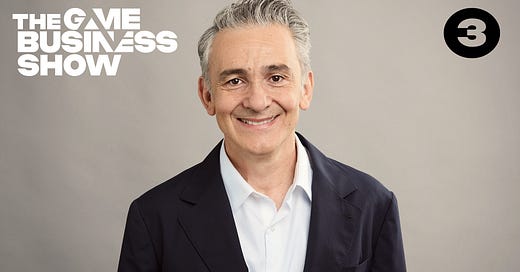


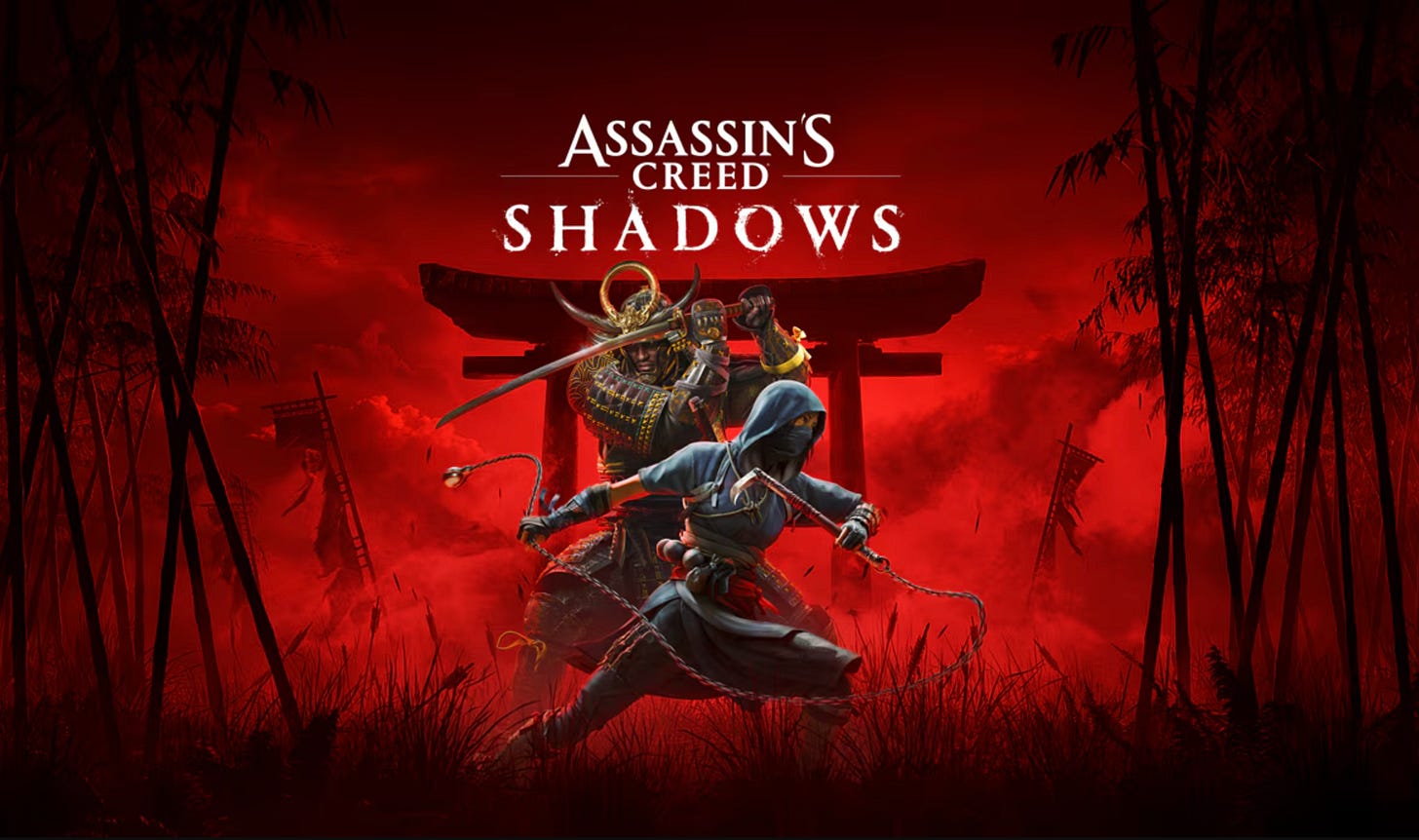
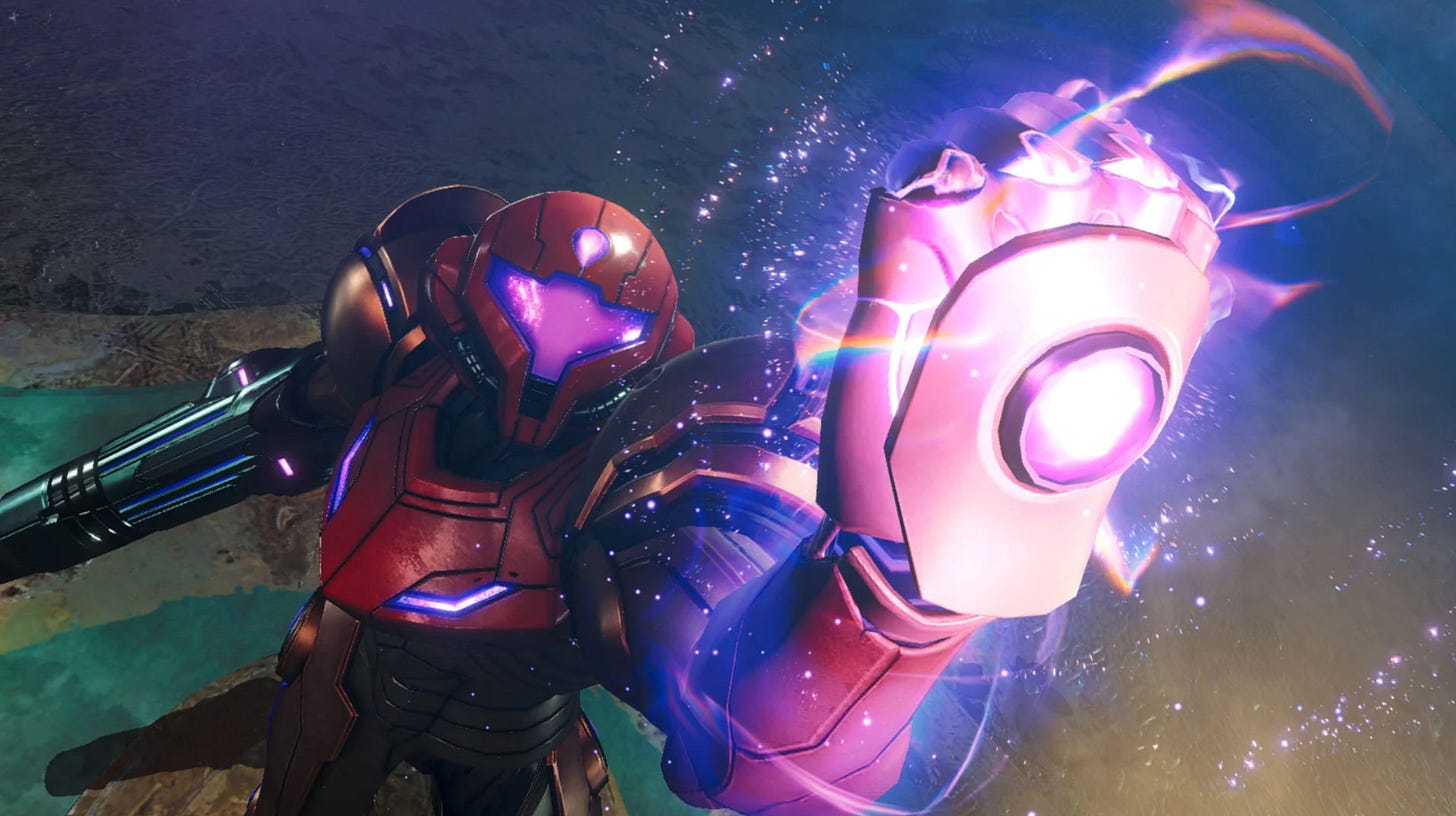
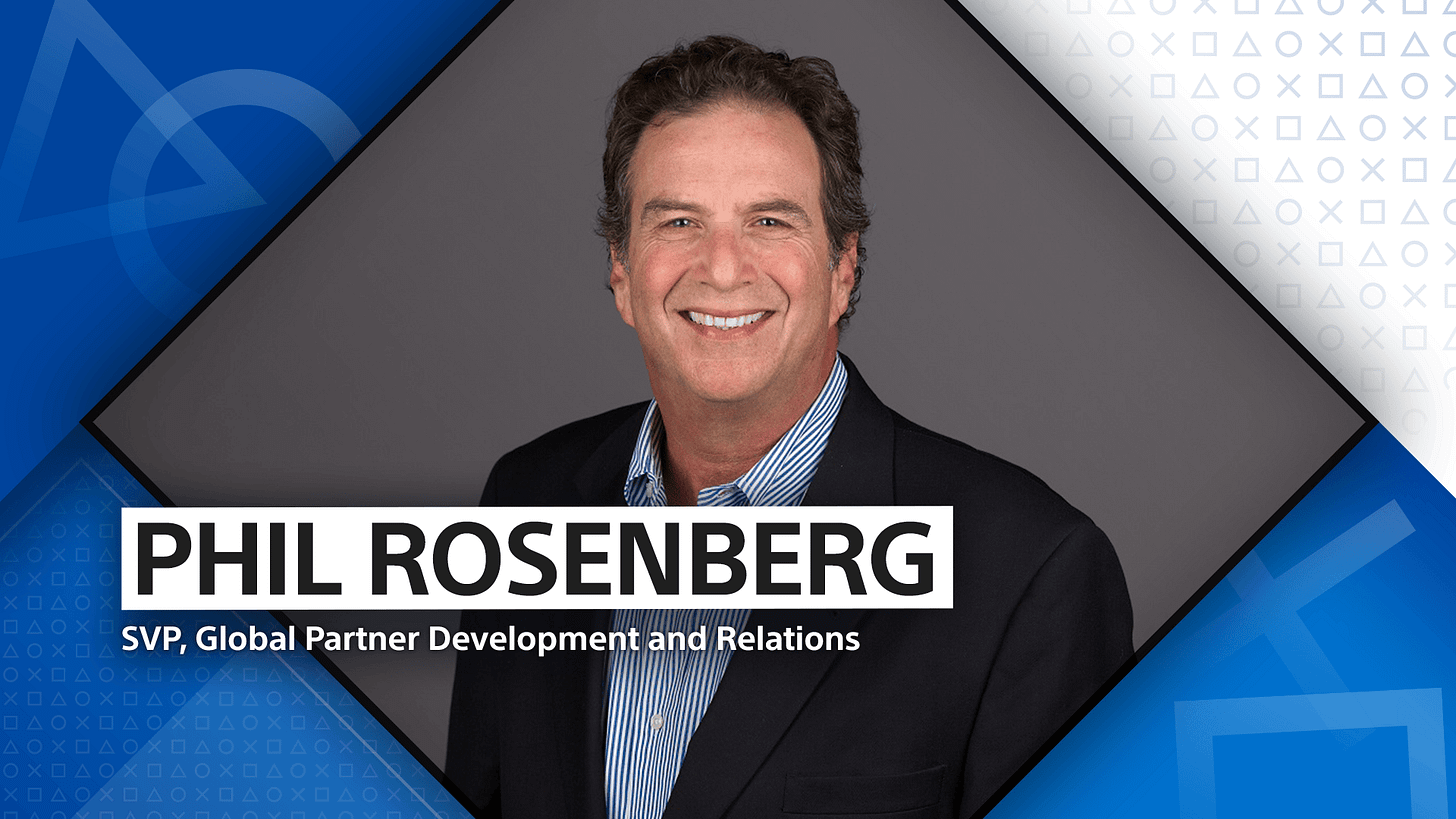

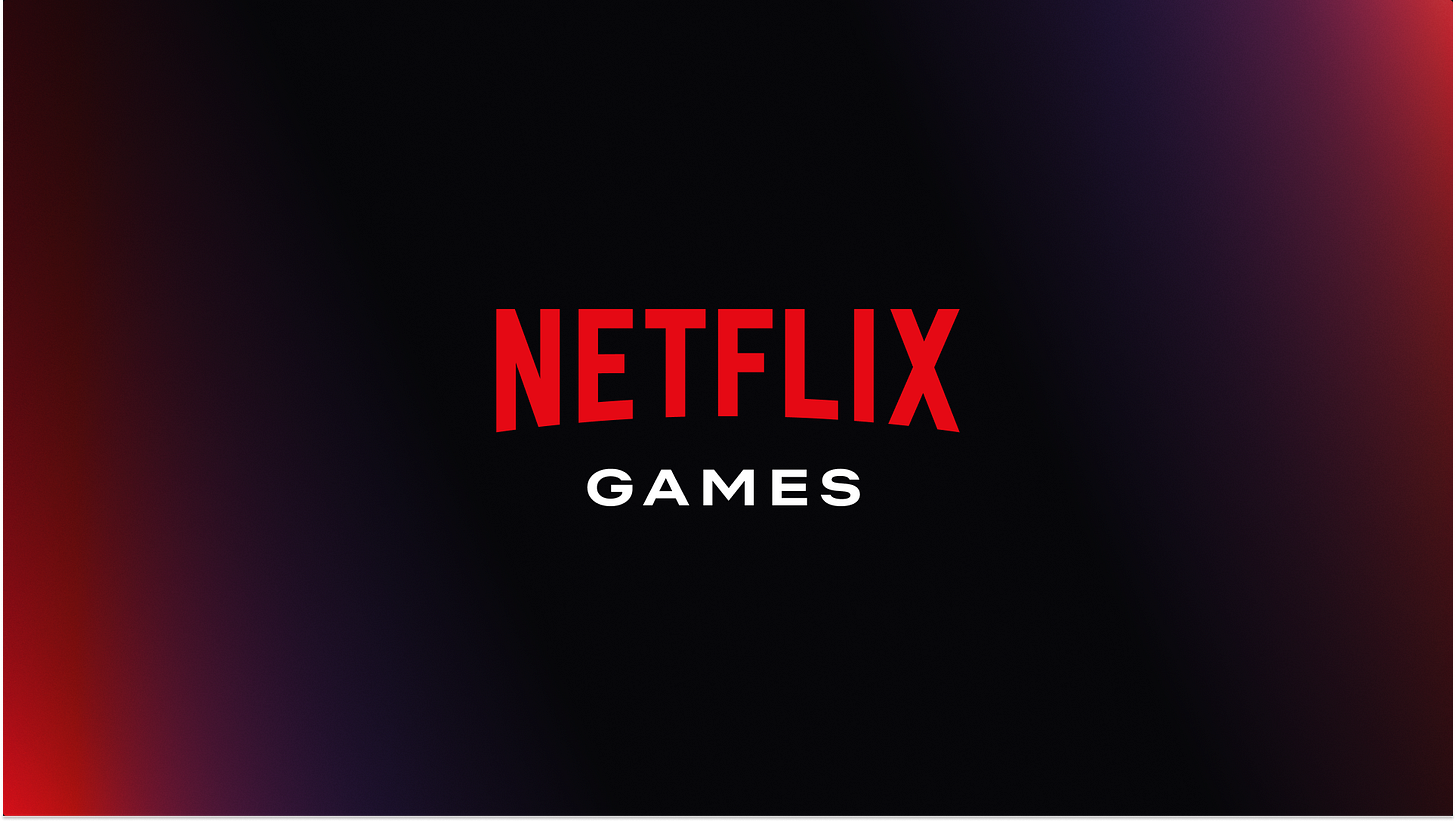




Share this post